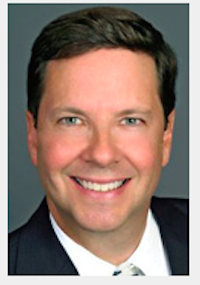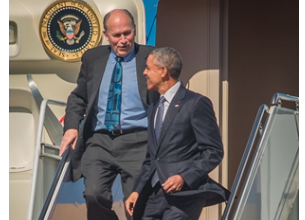The Anchorage municipal race ends on April 3, the date when all the mail-in ballots have to be postmarked. There will not be regular polling locations for the first time in Anchorage history, due to a transition to the mail-in ballot.
The mayor’s race in particular will be closely watched due to a deterioration in the city’s quality of life in recent years, with murders, homelessness, rampant crime, and general lawlessness now becoming a concern.
Berkowitz filed with the Alaska Public Offices Commission in August to retain his three-year post.
But headwinds have formed for the mayor. He clumsily managed his responses to the serial killings that took place in Anchorage after he became mayor, and he has been cavalier about Anchorage turning into “Little Chicago” under his watch, with record-setting violent deaths. Recently, he said he wasn’t worried about North Korea, but more about moose and bears. He forgot to mention any concern he felt about violent crime.
Property taxes rose 5.7 percent this year, city employees received $7 million in raises, the budget is the highest in history, and Berkowitz is on record saying that due to budget shortfall, citizens would have to choose between public safety and snow plowing. Meanwhile, municipal employees received hefty raises.
Must Read Alaska spoke to politicos about who might run for mayor and here’s the current list of possible candidates:
Bill Evans, former assemblyman, an undeclared voter who left the Republican Party this year, Evans is also a former police officer and has his own legal practice in Anchorage. He is a centrist, but with his history on the Assembly regarding his proposed law relating to sexual orientation and gender identity, he may be a tough sell for the social conservatives.
Rebecca Logan, the president of the Alaska Support Industry Alliance, is a conservative activist and strong proponent of the business community. A Republican, she ran for the Chugach Electric board and won, and served as chair for two terms, and filed briefly for a legislative run in 2016.
Nick Begich III, the nephew of Mark Begich, is a Republican conservative who must have the most awkward Thanksgiving dinners with his uncles Tom and Mark, both firebrands of the Democratic Party. Nick is a business entrepreneur and a venture capitalist with commercial interests all over the world.
Dan Sullivan, the former mayor of Anchorage, has been heard telling people that with the liberal mix on the Assembly (9 liberal, 2 conservative), he doesn’t know if he can get anything done as mayor, so although he considered running again, he might not after all.
Lance Pruitt, the state representative for District 27, has been working on local issues lately, raising the question about whether he intends to file for mayor. The Berkowitz Administration is trying to relocate the Anchorage School District bus barn into a residential neighborhood in his district, which Pruitt has been advocating against. He might see this as a reason to take on the mayor in April.
The Protect Our Privacy “bathroom bill” on the municipal ballot, along with the launch of vote-by-mail-only balloting, promises to make the 2018 municipal election a lively season of debate. The American Civil Liberties Union is gearing up for a fight with the Protect Our Privacy advocates over whether men may use women’s public bathrooms and locker rooms on a regular basis, if they so choose, and vice versa.





